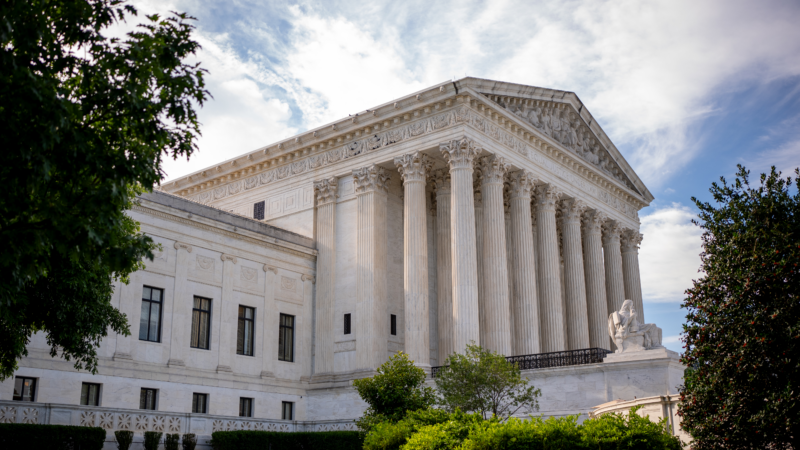Trump takes birthright citizenship to the Supreme Court
The Trump administration is taking its fight to nullify birthright citizenship to the U.S. Supreme Court. To date, every court to have considered Trump’s executive order, issued on day one of his administration, has blocked it. But he is persisting.
President Trump’s contention that birthright citizenship is unconstitutional is widely considered a fringe view because the Supreme Court ruled to the contrary 127 years ago, and that decision has never been disturbed.
Indeed, the 14th amendment says: “All persons born or naturalized in the United States, and subject to the jurisdiction thereof, are citizens of the United States.” Trump, however, has long argued that there is no such thing as automatic citizenship, at least not for all children born in the U.S.
Already, three federal judges in three different states have blocked Trump’s executive order voiding birthright citizenship, and three separate appeals courts have refused to unblock those court orders. Judge John Coughenour, a Reagan appointee in Washington state, was the first judge to block Trump’s executive order, calling it “blatantly unconstitutional.”
But Thursday, in three separate — but nearly identical — filings, the Trump administration asked the Supreme Court to narrow the lower court orders, which apply nationwide, so that the administration could begin planning to put into effect its new policy against birthright citizenship.
Stephen Yale-Loehr, a retired immigration law professor at Cornell and the co-author of a widely used treatise on immigration, said the court might well be willing to grant that temporary narrowing request. But he added, “I think that would cause chaos and confusion as to who was included in the court rulings and who is potentially subject to the birthright citizenship ban if the case goes in favor of the Trump administration on the merits.”
Interestingly, the Trump administration’s Supreme Court filing spends far more time on the power of lower court judges to issue nationwide injunctions, as in this case, than it does on the question of birthright citizenship. That may be because some of the Court’s justices have often complained about such nationwide rulings, and rather than deal with the birthright citizenship question, where the administration faces an uphill battle, it may think it has a better shot with a frontal attack on nationwide injunctions.
“At the very least, they have an indication that they have a better chance on the injunction question than on the [constitutional question] of birthright citizenship,” said Ilya Somin, a professor at Antonin Scalia Law School.
That said, Republican-run states made wide use of nationwide injunctions when they were attacking Biden and Obama administration policies, and the Supreme Court didn’t intervene then. The middle ground, says Professor Yale-Loehr, might be for the Supreme Court to allow the Trump administration to at least begin its plans to obliterate birthright citizenship.
“The Supreme Court may well limit the injunctions partially, maybe not to the extent that the Trump Administration wants, but [to the extent] that will allow the Trump administration to claim a political victory.”
Before any ruling, though, the justices will ask for a response from the other side.
Out with the mayo: How Ukrainians reclaim holiday food
For many people from former Soviet countries, New Year's is a big holiday feast time. A Ukrainian restaurant in Washington gives NPR a taste of what's on the menu.
His brother’s mental illness isolated his family. Now he’s helping other caregivers
When it comes to serious mental illness, family caregivers are crucial partners. But often, they must fend for themselves. A new solution offers them support.
50 wonderful things from 2025
Each year, critic Linda Holmes looks back on the year and compiles a list of the things that brought her joy.
Farmers are about to pay a lot more for health insurance
Tariffs, inflation, and other federal policies have battered U.S. farmers' bottom lines. Now many farmers say the expiration of federal health care subsidies will make their coverage unaffordable.
Why do we make New Year’s resolutions? A brief history of a long tradition
One of the earliest mentions of New Year's resolutions appeared in a Boston newspaper in 1813. But the practice itself can be traced back to the Babylonians.
Judge orders new trial for Alabama woman sentenced to 18 years in prison after stillbirth
Lee County Circuit Judge Jeffrey Tickal vacated Brooke Shoemaker’s 2020 conviction for chemical endangerment of a child resulting in death. Tickal said Shoemaker's attorneys presented credible new evidence that the infection caused the stillbirth.








